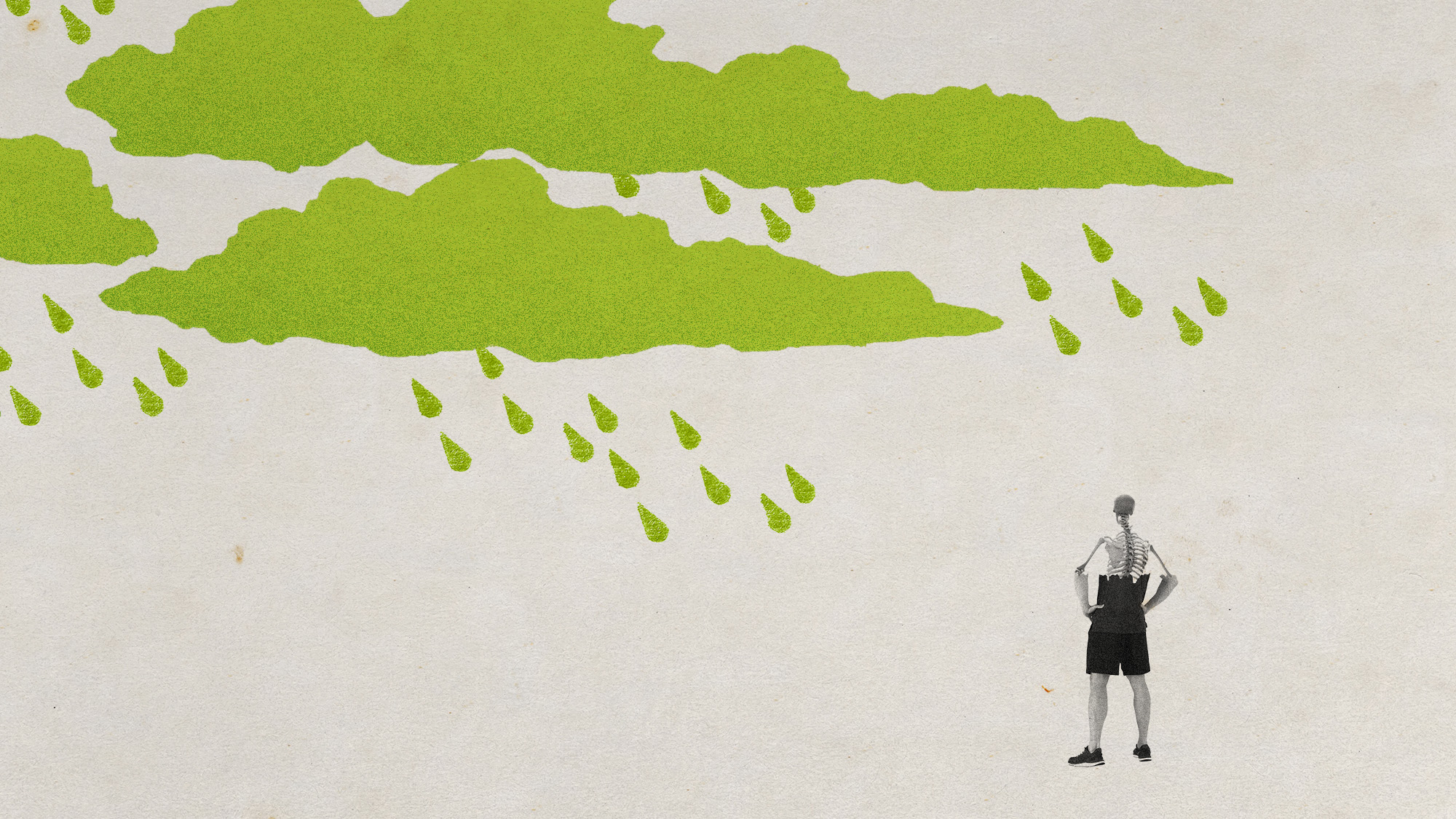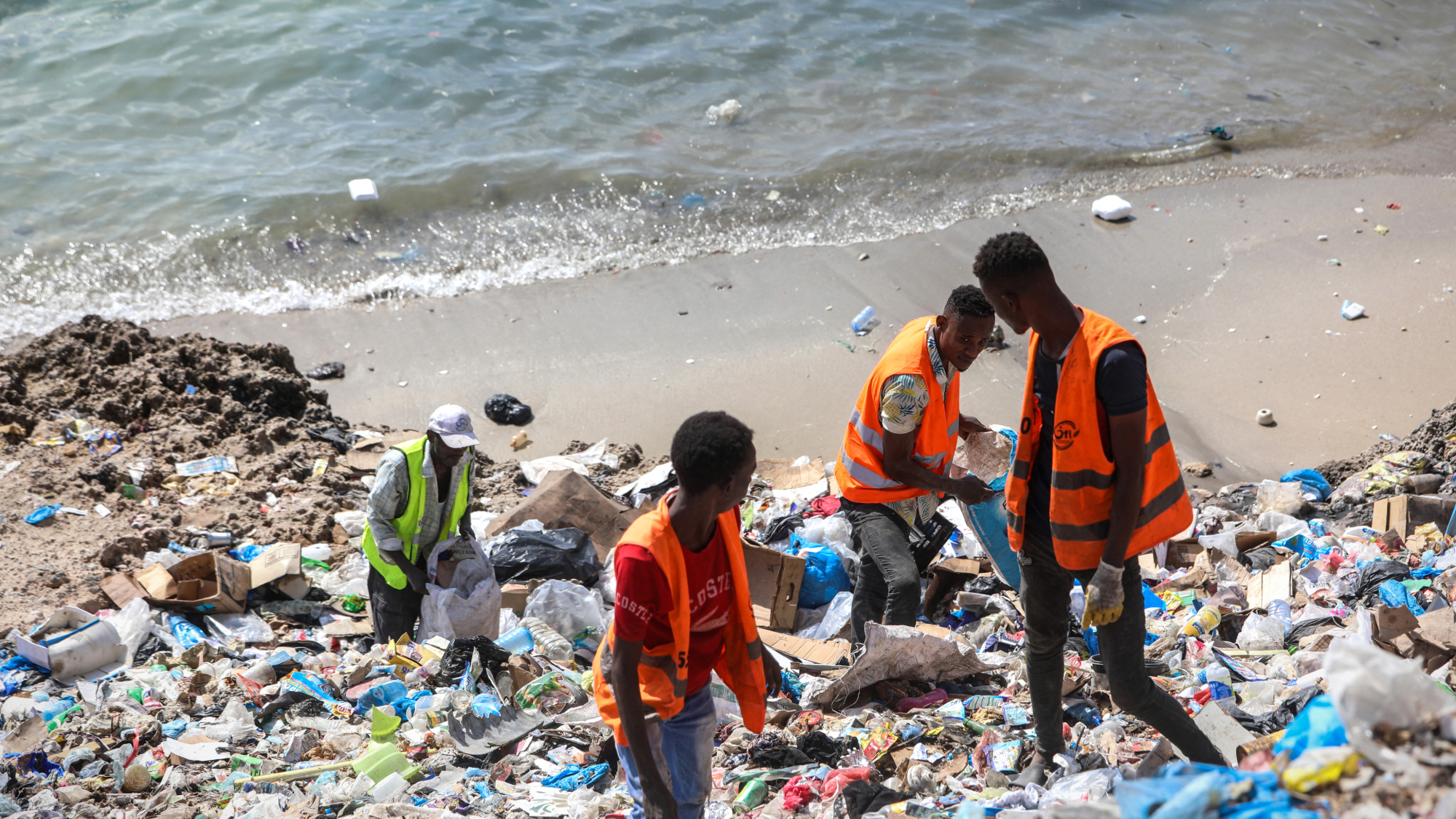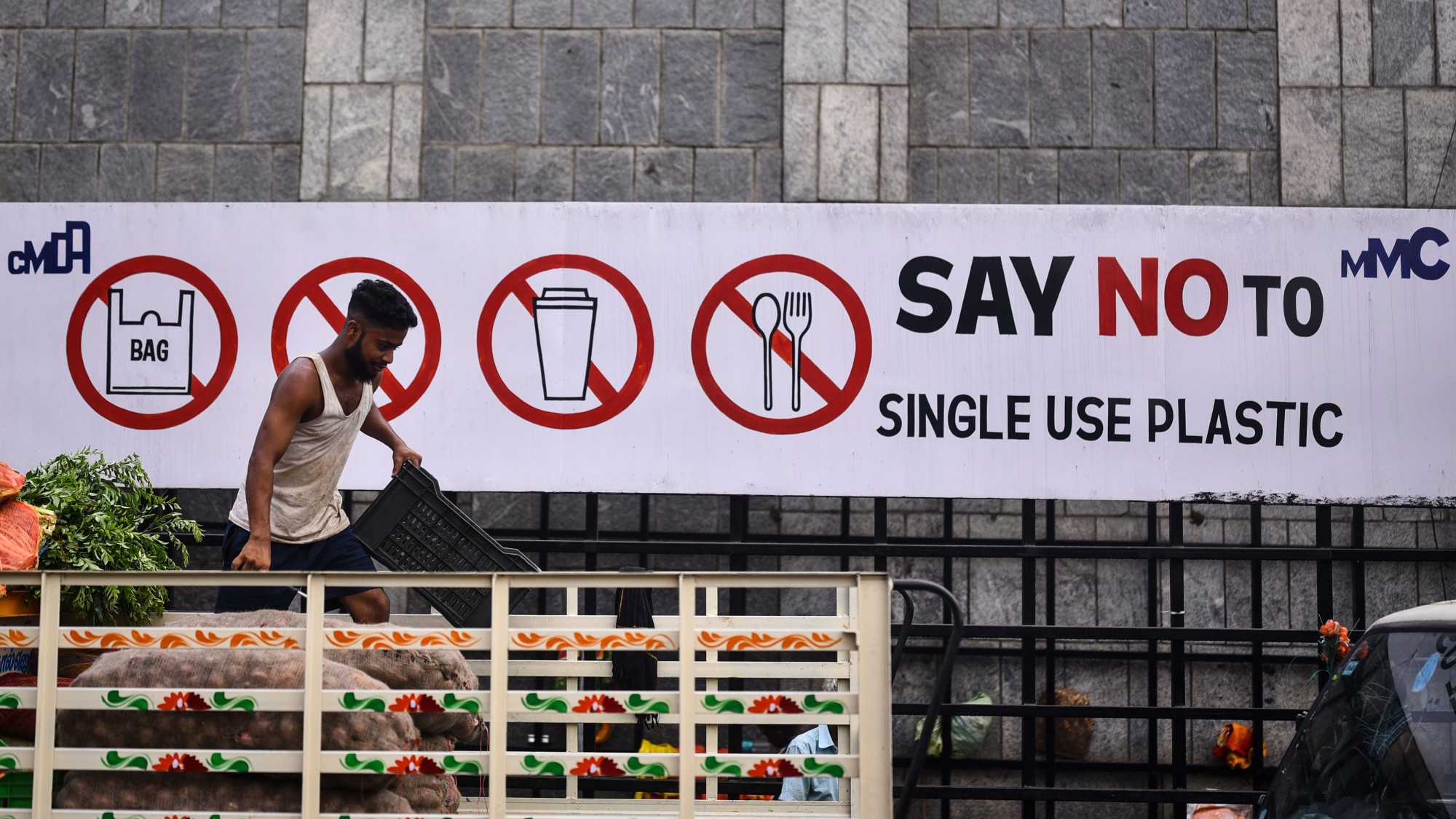Wet wipes face ban in plastics crackdown
Government acts amid reports of sewer blockages and clogged riverbeds

A free daily email with the biggest news stories of the day – and the best features from TheWeek.com
You are now subscribed
Your newsletter sign-up was successful
Wet wipes containing non-biodegradable plastic are to be phased out of the UK market, the Government has said.
The Department for Environment, Food and Rural Affairs (Defra) said that the Government will work with manufacturers to ensure that the current non-biodegradable wipes are phased out.
“As part of our 25-year environment plan, we have pledged to eliminate all avoidable plastic waste, and that includes single-use products like wet wipes,” a Defra spokesperson said.
The Week
Escape your echo chamber. Get the facts behind the news, plus analysis from multiple perspectives.

Sign up for The Week's Free Newsletters
From our morning news briefing to a weekly Good News Newsletter, get the best of The Week delivered directly to your inbox.
From our morning news briefing to a weekly Good News Newsletter, get the best of The Week delivered directly to your inbox.
By the end of that timeframe, “manufacturers will either have to develop plastic-free wipes or consumers will have to go without”, says the BBC.
Wet wipes may be an innocuous part of life for millions of Britons, used for everyday tasks like removing make-up, cleaning hands and changing nappies, but environmentalists say their impact on the UK’s ecosystems is catastrophic.
The wipes are meant to be disposed of in rubbish bins, but “despite public awareness campaigns, many are still flushed into lavatories”, says The Independent, clogging the nation’s sewers.
Water UK told the BBC that wet wipes “are behind 93% of blockages in UK sewers, a key element of the infamous giant obstacles known as fatbergs”, costing ratepayers in the region of £100m per year.
A free daily email with the biggest news stories of the day – and the best features from TheWeek.com
The wipes which make it through the sewage system are ending up in the UK’s rivers in such numbers that activists claim the deposits are changing the shape of riverbeds.
On a single day last month, volunteer river cleanup group Thames 21 gathered 5,453 wet wipes from a section of the Thames “the size of half a tennis court”, The Guardian reports - “an increase of nearly a thousand over last year’s total”.
The buildup also has deadly consequences for riverlife, as the microfibres inside the tissues can be fatal when ingested by fish.
-
 How to Get to Heaven from Belfast: a ‘highly entertaining ride’
How to Get to Heaven from Belfast: a ‘highly entertaining ride’The Week Recommends Mystery-comedy from the creator of Derry Girls should be ‘your new binge-watch’
-
 The 8 best TV shows of the 1960s
The 8 best TV shows of the 1960sThe standout shows of this decade take viewers from outer space to the Wild West
-
 Microdramas are booming
Microdramas are boomingUnder the radar Scroll to watch a whole movie
-
 The environmental cost of GLP-1s
The environmental cost of GLP-1sThe explainer Producing the drugs is a dirty process
-
 ‘Like a gas chamber’: the air pollution throttling Delhi
‘Like a gas chamber’: the air pollution throttling DelhiUnder The Radar Indian capital has tried cloud seeding to address the crisis, which has seen schools closed and outdoor events suspended
-
 Acid rain is back: the sequel nobody wanted
Acid rain is back: the sequel nobody wantedUnder The Radar A 'forever chemical' in rainwater is reviving a largely forgotten environmental issue
-
 Why is the world so divided over plastics?
Why is the world so divided over plastics?Today's Big Question UN negotiations on first global plastic treaty are at stake, as fossil fuel companies, petrostates and plastic industry work to resist a legal cap on production
-
 Anti-anxiety drug has a not-too-surprising effect on fish
Anti-anxiety drug has a not-too-surprising effect on fishUnder the radar The fish act bolder and take more risks
-
 Global plastics summit starts as COP29 ends
Global plastics summit starts as COP29 endsSpeed Read Negotiators gathering in South Korea seek an end to the world's plastic pollution crisis, though Trump's election may muddle the deal
-
 Oysters from New York's past could shore up its future
Oysters from New York's past could shore up its futureUnder the Radar Project aims to seed a billion oysters in the city's waterways to improve water quality, fight coastal erosion and protect against storm surges
-
 Mushrooms and urine – the strange solutions to our plastic problem
Mushrooms and urine – the strange solutions to our plastic problemThe Explainer Over 30% of plastics are single-use prompting imaginative alternatives